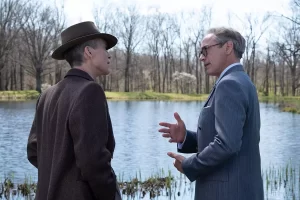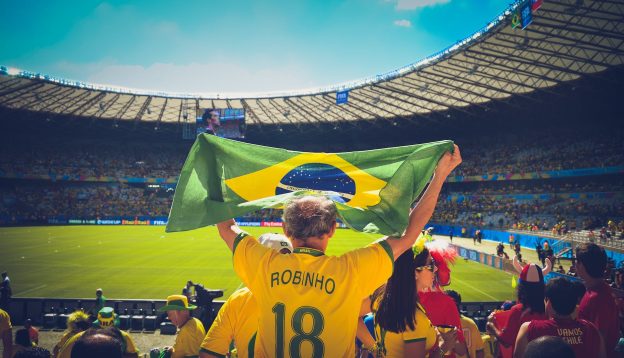After twelve years, The Big Bang Theory has come to an end. It has been a journey, like any other, full of highs and lows. The series had its bad moments, but they were vastly outnumbered by the good moments.
As always, there are those who didn’t like the ending. And, more significatively, there are those who never liked the series overall. One thing is certain, though: TBBT managed to avoid two of the worst kinds of endings ir risked having.
WARNING: SPOILERS AHEAD.
You’ve been warned.
The bad alternative
The bad ending would have been something along the lines of what happened with Game of Thrones.
GoT began as a series under heavy influence by the original author, and therefore it maintained a large chunk of the original strength impact of the books. But, as it always happens when a work is adapted, the series diverged from the books. To make things even more complicated, the series quickly “caught up” to the books. The already infamously slow pace on the part of George R. R. Martin in finishing the books ensured that the series would conclude its seventh season at a point where there was nothing left to base the story on.
The eigth season was, therefore, build “without a net”, that is, without the support of the “original” story. Not that it had much relevance, to be honest. By this point there were enough differences between books and series that they could be considered to be independent entities.
At any rate, the eigth season came and went in a huff, and left a clear impression that it was made exclusively to finish all of the pending story arcs left. There was nothing that was really new. Everything that happened had the express purpose of finishing the story. And, not being the original authors, Benioff, Weiss et al were not able to deliver in those six episodes the same that was offered in previous seasons.
The end result was an ending that, although not bat – yes, it does have a lot of good qualities about it – was not authentic.
The worse alternative
As much as the ending to Game of Thrones might be considered bad, there is a much, MUCH worse case.
How I Met Your Mother is an example of a series that was, overall, excellent. And it’s also an example of how an excellent series can be ruined by – almost literally – just a few minutes in the end.
The original idea was intriguing: father tells his kids about how he met their mother. Sure, he’s probably the most prolix person in the history of mankind. But the genius of the series kept up with the times. One of the most interesting aspect of the series was all of the juggling around not revealing the mother until the last moment. The most we could get of her was a foot here, or an umbrella there.
Besides that, the series had a level of planning and self-reference that went beyond anything that came before – and it took nothing less than Kevin Feige‘s brilliance ahead of the MCU to top it. Things that appeared early in the show were still there – and being used – late in the final season – a huge credit to Bays and Thomas, creators of the show.
If not for the last episode, the series would have secured its place among the best ever made.
If not for that last episode.
In a couple of scenes the series falls completely apart. In one of the sleaziest deus ex machinas in the history of time, Ted ends up with Robin, in the greatest anticlimax ever made. Robin and Barney promptly get divorced (after an entire season of anticipation of their wedding) in a quick scene. And almost as a footnote, Tracy, the mother in the title of the series, dies for no good reason.
A Nobel is not so bad…
Considering the alternatives, would it be the case, then, to rationalize the ending of The Big Bang Theory as “not so bad”?
No.
The reason is simple: rationalizing is unnecessary. The last episode closes the story in a positive, good humored, invigorating way.
Sheldon, the character that conquered so many people, realizes his greatest dream and wins the Nobel Prize. Yet, the prize is left to the second plane in the story.
The worth of The Big Bang Theory
One thing that certain people never quite understood about TBBT is that the kernel of the show is not about the “nerds”, nor “scientists”. The kernel of TBBT is the universality of the personal growth everyone has to go through in life. Be it the eccentric genius of the waitress who wanted to be an actress, everyone in the series went through great transformations over the last twelve years.
The fact that it made the nerd/science universe popular is the other great merit of the show. However, even more significant is the fact that these aspects were not the focal points of the series. They served as subsidy in the overall context of the story.
Those aspects were more pronounced early in the series, naturally, since everything was a novelty. The “nerdness” of the characters, the references and jokes were unprecedented. But no show survives only on those tropes – it becomes mandatory to actually tell a story. And any story worth the trouble moves forward.
Some people I know became serious critics of the show because it “abandoned its roots” – when nothing could be farther from the truth since the show merely moved on. When that happens the chracters have to move on as well, or fall into irrelevance.
Sadly this “purism” didn’t let people see the personal growth of the characters – which reflects the personal growth for any person, really. And that’s the most relevant message: nerds evolve like anybody else. Not accepting that implies that certain people, because of their personalities or their tastes, are different. This line of thought leads down a dangerous path.
No series is perfect…
Not everything is well and good, naturally. Like any show, TBBT had its highs and lows. And that’s perfectly natural for any series that lasts more than a few seasons.
Specifically, the first thing that comes to mind is Rajesh. For quite some time I expected – actually, hoped for – him to come out of the closet. In the end it did not happen. That was a wasted opportunity: at most, the topic served a few jokes. It could have followed the same path of the female participation, leading to something more meaningful.
Of the other guys, Leonard is the counterpoint to Sheldon and Howard in the most negative aspect of the show. Sensible and tolerant, he opposed their (sometimes veiled) toxic masculinity. That was painfully manifested when Sheldon or, more frequently, Howard insisted on making jokes and comments that deserve nothing else than ostracism.
The higher note comes from the female side of the ensemble. Thew girls finish the series as owners of their own fates. In particular, Amy’s speech at the Nobel Ceremony deserves a standing ovation. One negative mark could be that Penny – always vocally against having children – ends up pregnant.
Female protagonism in a series targeted at an audience predominantly composed of male adults is beautiful. There is no scarcity of examples where icons of nerd culture received mordacious criticism when trying to give more visibility to women – or minorities for that matter. Fortunately that was not the case with The Big Bang Theory. The series managed to introduce female characters who were successful and independent. On top of that, they gradually grew into the same spotlight the male characters did. In fact, one could argue that the growth of the male characters is due, mostly, to the influence of the women in their lives.
Personal significance of the series
Overall, the ending of the series serves the same general purpose. Even with its hiccups, The Big Bang Theory is a show that I’ll take with me for a long, long time. It portrayed aspects of my life that no other show could. And it only managed that because of the context it set off to showcase.
Twelve years is a long time. My life went through its own highs and lows over that time, and I have been through moments that will always be among the best – and the worst – of my life. During that time I had absolutely devastating experiences. I lost my father, had to reevaluate the way I see my friends and family. I concluded a masters and a PhD and got through a depression. I lived abroad twice, and even had a period when I was a nomad.
Throughout all of those moments, among all things, I can count on the fingers of one hand those that remained constant. And this show was one of them.
A worthy ending
In general, everyone grew – and as I said before, this is the great positive of the series. More than funny references, more than smart jokes, more than scientific tirades. The fact that these characters evolved beyond what they were in the beginning of their journey is incalculably precious. If there is one thing in the Universe that is constant, it’s change. And that is precisely the message of the last episode.
In the end, The Big Bang Theory ends with a huge net positive. Not always brilliant, and sometimes quite irregular, the series prtrayed a group of people who grew together without losing their identities, while occupying spaces where they “didn’t belong”. Rajesh is, sadly, the exception to that rule, although he also evolved in his own way. Leonard became more confident and resolute. Howard became less insecure and less toxic (although not completely). Amy and Bernadette became references to women in STEM. Penny became a symbol of the fact that vastly different people can always find common ground and relate to each other, even when that seems impossible.
But it’s Sheldon that represents the most emblematic character of that evolution. Just like Spock in Star Trek he became the greatest proxy of the perspective on mankind, exactly for positioning himself – at least initially – as an “outsider”. He began the series as a distant, arrogant and elitist intellectual purist. And take it from someone who spent the last 20 years in academia: that simile is not far from the truth. However, like the others, he slowly grew into other spaces. In the end, he became a more relatable human being – culminating with his acceptance speech.
Concluding…
Lastly, it’s worth mentioning that those characters do not need to be “realistic”. Like any other show, The Big Bang Theory told its stories through stereotypes that represented different aspects. And it’s exactly the outstanding characteristic of each character that made us love them or hate them, according to the perspective they offered about ourselves.
For me, this series was a great ally in my own self knowledge journey, and I will always cherish it for that.








Leave a Reply